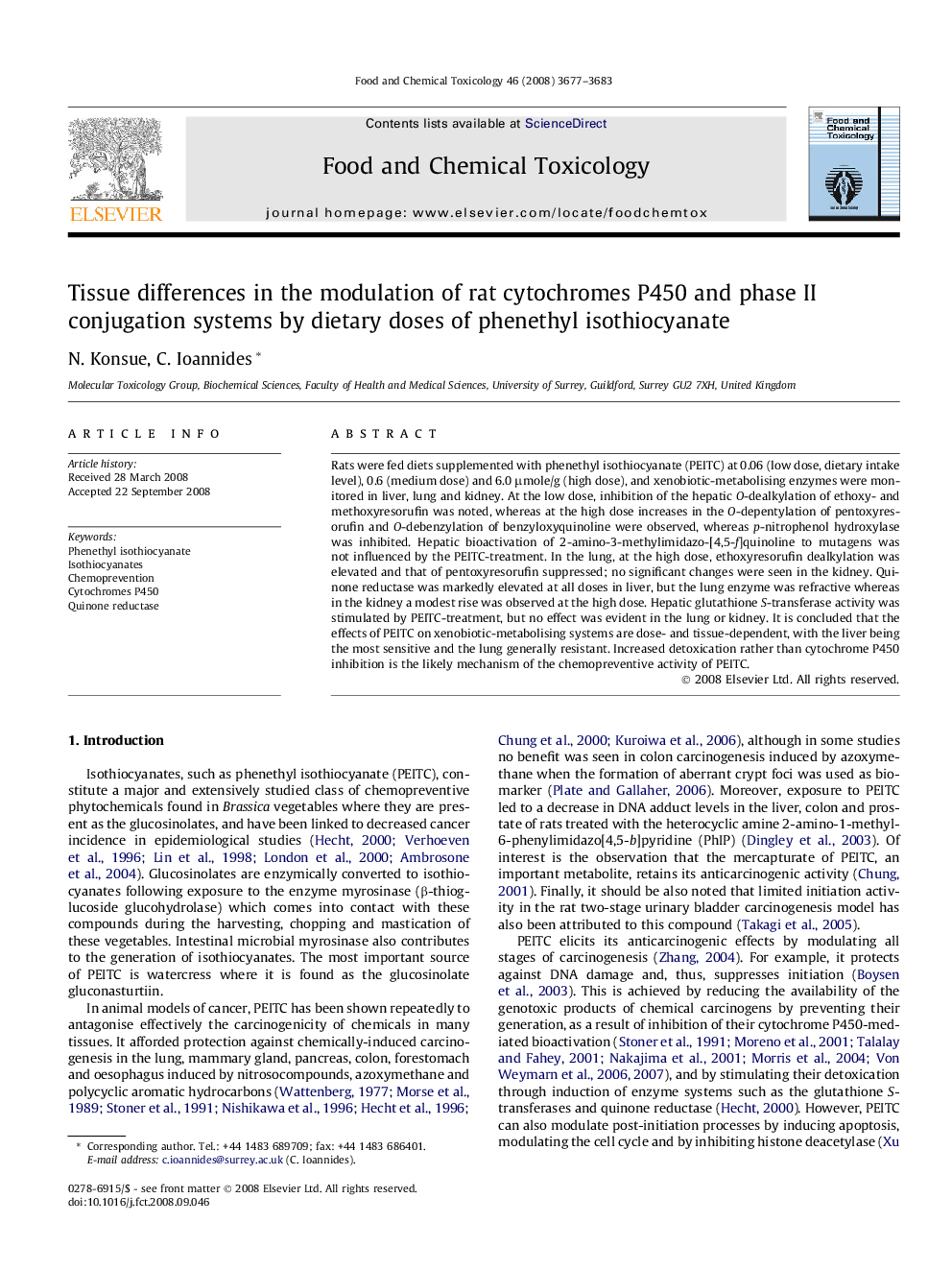| Article ID | Journal | Published Year | Pages | File Type |
|---|---|---|---|---|
| 2586316 | Food and Chemical Toxicology | 2008 | 7 Pages |
Rats were fed diets supplemented with phenethyl isothiocyanate (PEITC) at 0.06 (low dose, dietary intake level), 0.6 (medium dose) and 6.0 μmole/g (high dose), and xenobiotic-metabolising enzymes were monitored in liver, lung and kidney. At the low dose, inhibition of the hepatic O-dealkylation of ethoxy- and methoxyresorufin was noted, whereas at the high dose increases in the O-depentylation of pentoxyresorufin and O-debenzylation of benzyloxyquinoline were observed, whereas p-nitrophenol hydroxylase was inhibited. Hepatic bioactivation of 2-amino-3-methylimidazo-[4,5-f]quinoline to mutagens was not influenced by the PEITC-treatment. In the lung, at the high dose, ethoxyresorufin dealkylation was elevated and that of pentoxyresorufin suppressed; no significant changes were seen in the kidney. Quinone reductase was markedly elevated at all doses in liver, but the lung enzyme was refractive whereas in the kidney a modest rise was observed at the high dose. Hepatic glutathione S-transferase activity was stimulated by PEITC-treatment, but no effect was evident in the lung or kidney. It is concluded that the effects of PEITC on xenobiotic-metabolising systems are dose- and tissue-dependent, with the liver being the most sensitive and the lung generally resistant. Increased detoxication rather than cytochrome P450 inhibition is the likely mechanism of the chemopreventive activity of PEITC.
